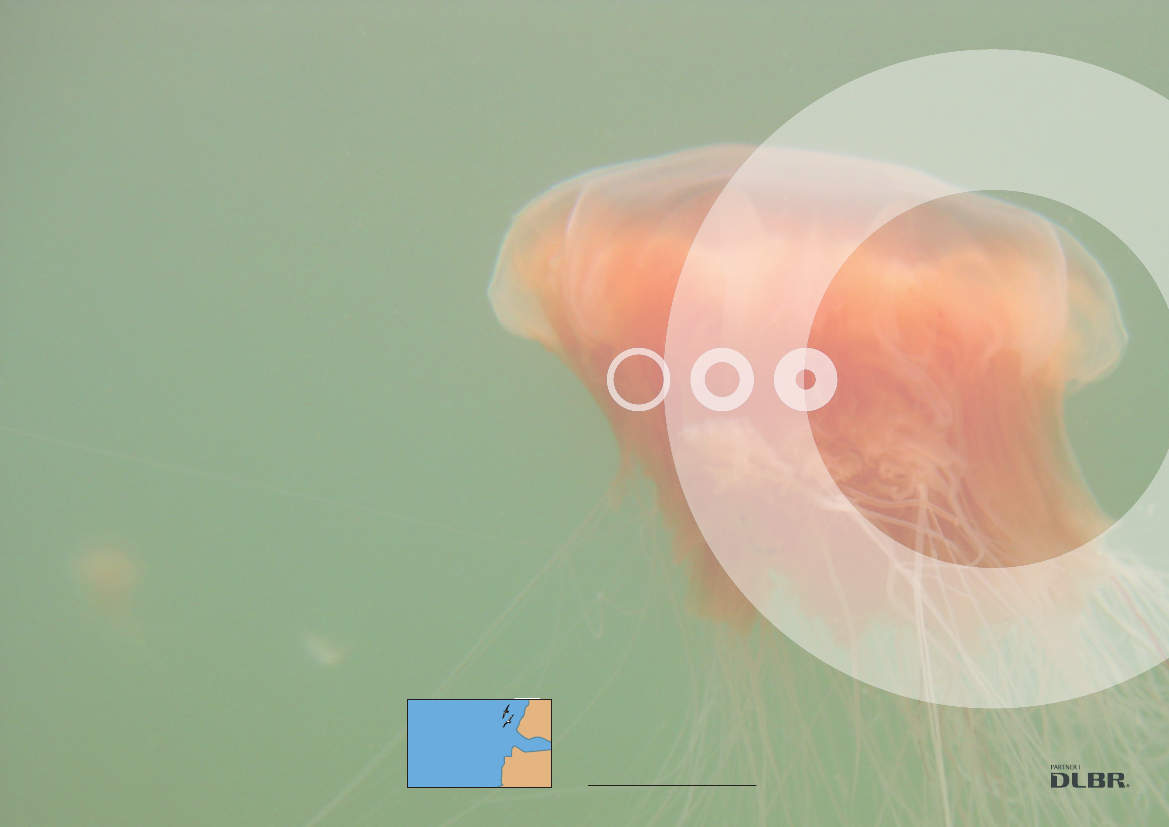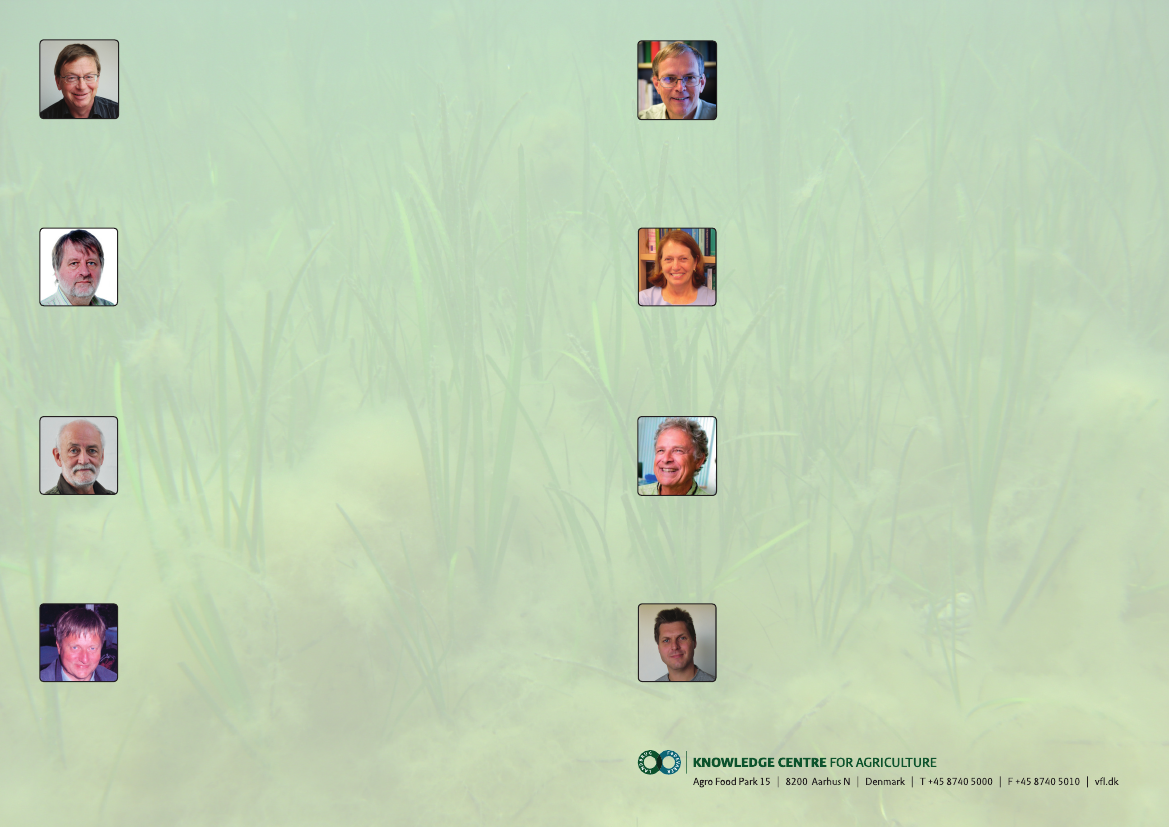Miljøudvalget 2012-13
MIU Alm.del Bilag 266
Offentligt


Danish Coastal WatersConference on significant factors controllingeutrophication in Danish coastal waters19 June 2013 - DGI-byen - CopenhaGenKl. 9.00-16.30Will further reduction in nitrogen improve the environmental status of coastalwaters? Is phosphorus more important? Are there other stressors that have beenoverlooked in efforts to achieve good environmental status in Danish coastalwaters? Leading researchers in the field will present and discuss their views at theconference ‘Danish Coastal Waters’ and we hereby invite you to participate.The purpose of the conference is to give the participants a better understandingof what controls eutrophication in coastal waters, thus help qualify the nationaldebate and create a better basis for revising regulation - and to identify areaswhere more knowledge is needed.The agricultural sector has a vital interest in the topic and The Danish Agriculture& Food Council has requested the Knowledge Centre for Agriculture to organizethis conference. Current legislation is costly for the sector and has so far not had thedesired impact. However, more targeted and cost-efficient regulation could ensureboth improved marine conditions and a more profitable agricultural production.We have managed to gather a number of the most competent researchers inthe field, and we are confident that their contributions will provide us with newknowledge and a good discussion - both at the conference but also in the future.You can find more information about the conference on the website.We are looking forward to meeting you at the conference.
ProgrammeWelcomeVice chairman Lars Hvidtfeldt, The Danish Agriculture & Food Councilnitrogen and phosphorus in watercourses and loadings to coastal watersMSc Biology Jørgen Windolf, Aarhus Universitynitrogen and phosphorus in drainage waterChief Adviser Leif Knudsen, Knowledge Centre for Agriculturenutrient input from surrounding waters and the atmosphereeffect on open areas and fjordsChief Biologist Flemming Møhlenberg, DHIpanel discussion and questionsWhat is the role of nitrogen, phosphorus and organic matter in sedimentChief Biologist Erik Kock Rasmussen, DHISwedish experiences on the importance of n and p:are they relevant for Danish conditions?Professor Ragnar Elmgren, Department of Ecology, Environment and Plant SciencesStockholm Universityhow does the n/p-ratio affect the ecological system?Professor Patricia Glibert, University of Maryland (Videolink)Should n or p be controlled in order to mitigate eutrophicationProfessor Hans W. Paerl, Institute of Marine Sciences, The University of North Caro-lina at Chapel HillRecovery of marine ecosystems:Regime shifts, resilience and shifting baselinesProfessor Jacob Carstensen, Department of Bioscience, Marine Ecology, Aarhus Universitypanel discussion and questionsClosing remarksVice chairman Lars Hvidtfeldt, The Danish Agriculture & Food CouncilConference Registration Fee: 975 DKKRegister to the Conference
Carl Åge Pedersen, DirectorKnowledge Centre for Agriculture, Crop Production
DanishCoastalWaters
MSc Jørgen Windolf,Department of Bioscience, Aarhus University. Freshwaterbiologist, MSc, from University of Copenhagen. Thirty years’ experience withmonitoring and management of the aquatic environment acquired through workat local, regional and most recently national level. Works with the national moni-toring programme for the freshwater environment. Combined use of measurementdata and simple models for calculation of freshwater runoff and input of nutrientsto streams, fjords and coastal-near waters. Evaluation of the development andunderlying reasons.
Ragnar elmgrenis professor of Brackish Water Ecology at the Department of Ecology,Environment and Plant Sciences at Stockholm University. In 1976 he received hisPh.D. from Stockholm University for the thesis “Baltic Benthos Communities andthe Role of the Meiofauna”. In 1977-78 he studied the ecological effects of marineoil pollution at the Graduate School of Oceanography, University of Rhode Island.After returning to Stockholm University he has studied Baltic ecosystems, with anemphasis on bottom fauna, eutrophication effects, cyanobacterial blooms, and,increasingly, management issues and has supervised 20 Marine Ecology PhDs. Hiscurrent research projects deal with adaptive management of nutrient discharges tothe coastal zone, ecosystem effects of Baltic cyanobacterial blooms and ecosystem-based management of the Baltic Sea.patricia Glibertis a Professor at the University of Maryland Center for Environ-mental Science (UMCES), Horn Point Laboratory. She received her Ph.D. fromHarvard University and was a Postdoctoral Scholar and an Assistant Scientist at theWoods Hole Oceanographic before moving to the University of Maryland. Dr. Glibertalso holds an Honorary Doctorate from Linnaeus University, Sweden, and is aFellow of the American Association for the Advancement of Science. Pat’s researchcenters around questions related to nutrient dynamics, particularly the effects ofeutrophication, and algal blooms. Her current work is focused on the linkages be-tween changes in the amounts and forms of nutrient loading, harmful algal blooms(HABs), and changes in aquatic food web structure.
Chief adviser Leif Knudsenhas been employed at the Knowledge Centre forAgriculture and worked within the fields of Fertilisation and Drainage since 1992.Over the years, Leif Knudsen has participated in and been the leader of numerousprojects dealing with better nutrient utilisation and methods to reduce nitrogenloss in agricul-ture. For the last two years, nutrient contents in drainage water havebeen monitored. Furthermore, Leif Knudsen is responsible for calculating theeconomical optimal nitrogen standards.
Chief biologist Flemming Møhlenberghas been employed at the DHI Groupsince 1997. He is a professional marine ecologist who has more than 30 years ofexperience from long-term engagements at universities and the National Environ-mental Research Institute. During the last 20 years, he has worked with Danishmonitoring data and has used this background in several data syntheses and todevelop proposals for revision of monitoring programs. A coordinator and workpackage leader on national and international research projects. Over the past 3-4years, he has been involved in baseline studies and EIA studies in connection witha fixed link across the Femern Belt, and in parallel has led EIA studies related to theexpansion of aquaculture. Author and co-author of 50 scientific articles and a con-tributor to several books. Member of The Commission on Nature and Agriculture .Chief biologist erik Kock Rasmussen,DHI, has worked with ecological modeling ofmarine areas for 25 years and participated in EU or Danish funded marine researchprojects. Besides research projects he has participated as ecological modeler inseveral interdisciplinary international applied projects, like master plans (Brazil,Argentina, Chile, Bulgaria, Kaliningrad) or Environmental Impact Assessments(bridge, tunnels, power plants, marine wind mill farms).
hans W. paerlis Kenan Professor of Marine and Environmental Sciences at theUniversity of North Carolina’s Institute of Marine Sciences. His research addressesnutrient cycling and primary production dynamics, environmental controls andmanagement of harmful algal blooms, and assessing effects of human and climaticalterations of water quality and sustainability of inland and coastal waters. Hereceived the 2003 G. Evelyn Hutchinson Award from the Association of the Sciencesof Limnology and Oceanography, and the 2001 Odum Award from the Coastal andEstuarine Research Federation for addressing the causes, consequences and controlsof eutrophication in aquatic ecosystems.
Jacob Carstensenis a professor at the Department of Bioscience, Aarhus University.He is an ecological statistician with over 20 years’ research experience analysingenvironmental data. His research focuses mainly on describing and understandinglong-term trends of marine ecosystems in response to natural and anthropogenicpressures, particularly eutrophication and climate change. He has worked on severalprojects supporting the implementation of European Directives (WFD, MSFD).


